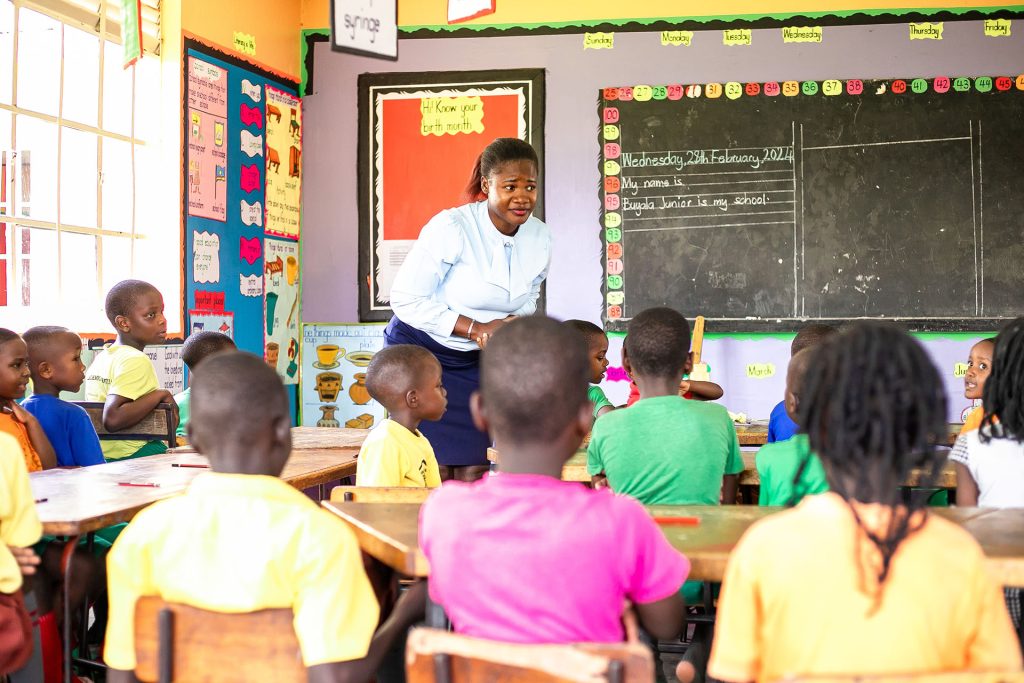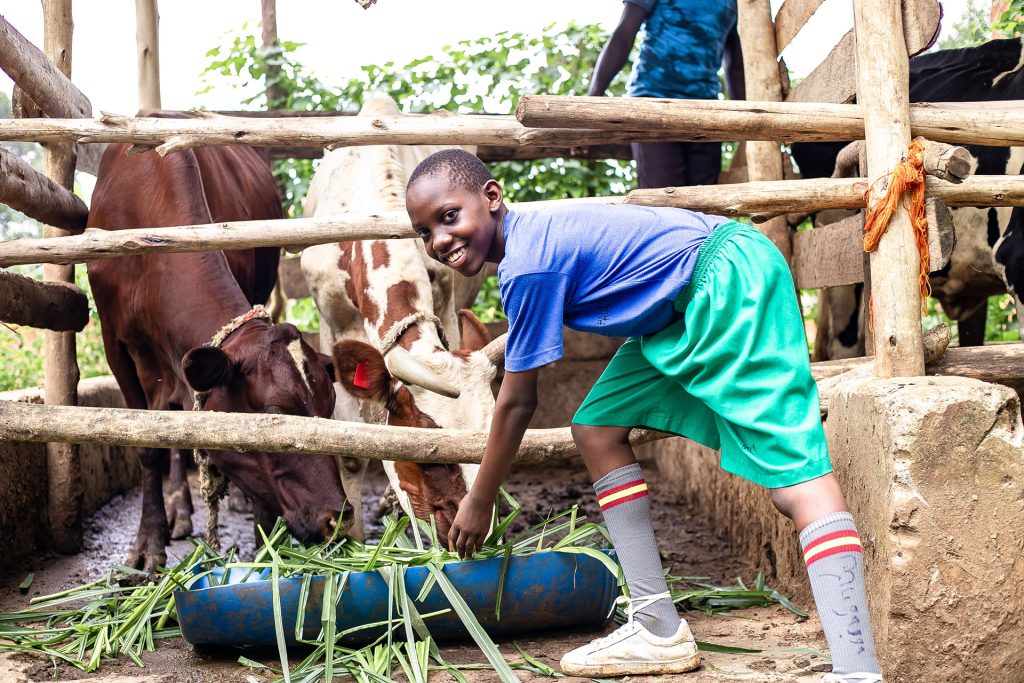Curriculum Overview
At Buyala Junior School, we pride ourselves on offering a comprehensive UNEB curriculum that integrates both Arts and Sciences, catering to the diverse talents and interests of our students. Our educational approach is founded on the belief that every child possesses unique strengths and abilities waiting to be nurtured. With a blend of traditional teaching methods and modern pedagogical practices, we aim to create a dynamic learning environment that fosters intellectual curiosity, critical thinking, and holistic development.


Educational Approach
Personalized Learning:
We recognize that each student learns at their own pace and in their own way. Our teachers tailor their instruction to meet the individual needs and learning styles of each student, ensuring that every child receives the support and encouragement they need to succeed.
Inquiry-Based Learning:
We encourage students to ask questions, explore concepts, and engage in hands-on activities that promote discovery and understanding. Through inquiry-based learning, students develop problem-solving skills, creativity, and a deeper appreciation for the subjects they study.
Integrated Curriculum:
Our curriculum seamlessly integrates subjects from both the Arts and Sciences, providing students with a well-rounded education that encourages interdisciplinary connections and real-world applications.
Skills Enhancement:
Through practical learning experiences, such as project-based assignments, agricultural experiments, field trips, and interactive workshops, students actively engage with concepts and develop real-world skills.
Subjects Taught
Mathematics:
From basic arithmetic to advanced algebra and geometry, our mathematics curriculum is designed to develop students’ mathematical reasoning, problem-solving abilities, and numerical fluency.
Language Arts:
Through reading, writing, speaking, and listening activities, students develop literacy skills, expand their vocabulary, and learn to express themselves effectively in both written and verbal communication.
Science:
Our science curriculum covers a wide range of topics, including biology, chemistry, physics, and environmental science. Through hands-on experiments, investigations, and field trips, students develop a deeper understanding of the natural world and the scientific method.
Social Studies:
Students explore the history, geography, culture, and society of Uganda and the wider world, gaining insights into different civilizations, political systems, and social issues.
Arts and Humanities:
From visual arts and music to drama and literature, our arts curriculum fosters creativity, self-expression, and appreciation for the cultural heritage of Uganda and beyond.
Learning Methodologies
Experiential Learning:
We believe that learning is most effective when it is experiential and hands-on. Students engage in practical activities, experiments, and projects that bring abstract concepts to life and make learning meaningful and memorable.
Collaborative Learning:
Students work together in groups and teams, sharing ideas, collaborating on projects, and learning from one another. Collaborative learning promotes communication skills, teamwork, and peer support.
Technology Integration:
We leverage technology to enhance teaching and learning, providing students with access to digital resources, educational software, and interactive multimedia tools that enrich their learning experience and prepare them for the digital age.
Assessment for Learning:
We use a variety of formative and summative assessment strategies to monitor student progress, provide feedback, and guide instruction. Assessment for learning helps students track their own growth and take ownership of their learning journey.
Scientific Methodology:
Our approach involves students actively engaging in the scientific method, which includes observation, hypothesis formation, experimentation, data collection, analysis, and conclusion drawing.
At Buyala Junior School, we are committed to providing a high-quality education that empowers students to reach their full potential academically, socially, and emotionally. By embracing a holistic approach to education and fostering a culture of curiosity, creativity, and collaboration, we prepare students to thrive in an ever-changing world.